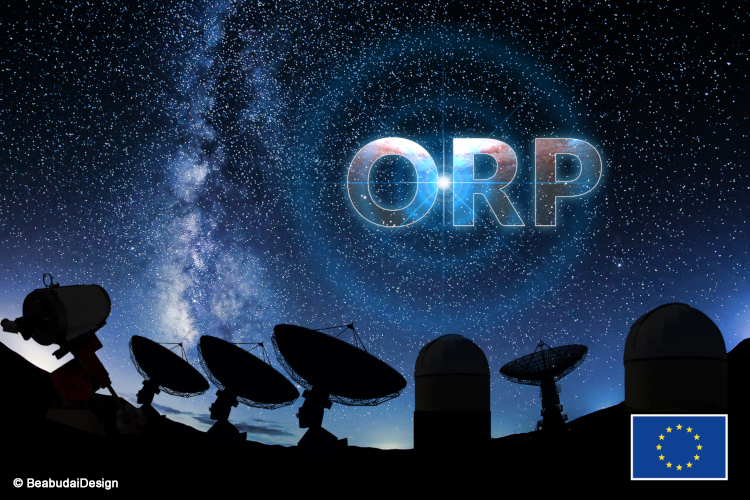Astrophysics, Space

The Institute of Astrophysics-FORTH joins Europe’s largest astronomy network
Until now, Europe has had two major collaborative networks for ground-based astronomy, one in the optical domain (OPTICON) and the other in the radio-wave domain (RadioNet).These two networks, having successfully served their respective communities over the past twenty years, now come together to form Europe’s largest ground-based astronomy collaborative network.
In Greece the network includes the Institute of Astrophysics FORTH and the National Observatory of Athens. During the ORP kick-off meeting on Tuesday 23 March 2021, the Director of the Institute of Astrophysics, Prof. Vassilis Charmandaris, was unanimously elected as Vice Chair of the Board of Directors of the network, having served as Chair of the Board of Directors of the OPTICON network for the past 2 years. The project is coordinated by CNRS (France), together with the University of Cambridge (UK) and the Max-Planck Institute for Radio Astronomy (MPIfR) (Germany) and it involves astronomers from 15 European countries, Australia and South Africa, amounting to 37 institutions.
As our knowledge of the Universe advances, astronomers increasingly need a range of complementary techniques in order to analyse and understand astronomical phenomena. As a result, the European Union has decided to bring together the optical and radio networks OPTICON and RadioNet. With €15 million in funding from the H2020 programme, the European astronomical community will now benefit from the formation of Europe’s largest ground-based astronomy network, which brings together some twenty telescopes and telescope arrays. The ORP network is intended to harmonise observational methods and tools for ground-based optical and radio astronomy instruments, and to provide researchers with access to a wider range of facilities, building on the success and experience of the OPTICON and RadioNet networks.According to the management team, led by Dr. Jean-Gabriel Cuby, ORP project coordinator at the CNRS National Institute for Earth Sciences and Astronomy in Marseille, and including also Prof. Gerry Gilmore from Cambridge and Prof. Anton Zensus from MPIfR: « it is very exciting to have this opportunity to further develop European integration in astronomy, and develop new scientific opportunities for astronomy research across Europe and globally. »
Upon his election, Prof. Charmandaris stated: “It is an honour that my colleagues from 37 institutions trusted me for this position. I am certain that this reflects the appreciation by the international community of the quality of research in Astrophysics, performed at the unique ecosystem of FORTH and the University of Crete, which operate Skinakas Observatory, with the highest scientific productivity in Greece. Skinakas Observatory will celebrate 35 years of operations on 12 April 2021. It is also a great responsibility, since my new position entails working efficiently, developing new ideas on improving and providing access to astronomical infrastructures, and anticipating future scientific demands. We are effectively given a unique opportunity by the E.U. to contribute, in a substantive manner, to the shaping of the future of European astronomy. Knowing the capabilities of all colleagues involved in the project, I am very optimistic that we will succeed. As we say here at the Institute of Astrophysics: ‘’the sky is not our limit!’’ “
The ORP will in particular foster the development of the booming field of what is known as multi-messenger astronomy, which makes use of a wide range of wavelengths as well as gravitational waves, cosmic rays and neutrinos. Removing barriers between communities, by harmonising observation protocols and analysis methods in the optical and radio domains, will enable astronomers to work better together when observing and monitoring transient and variable astronomical events.
More information is available at: http://www.orp-h2020.eu
The ORP project has received funding from the European Union’s Horizon 2020 research and innovation programme under grant agreement No 101004719








